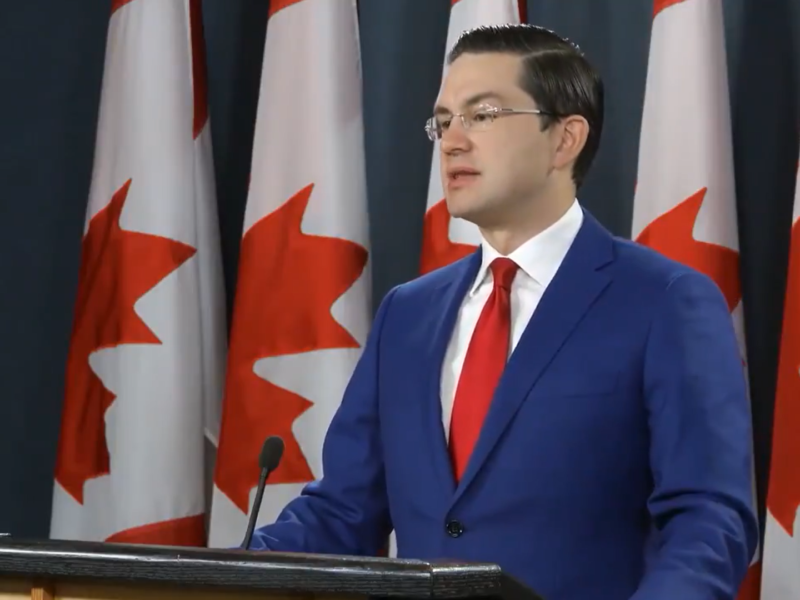


OTTAWA – Pierre Poilievre has dropped out of the Conservative leadership racer after failing the Turing test all of the party’s leadership candidates must pass to become party leader.
“The carbon tax has been proven to fail,” said Poilievre in a Facebook post. “When it comes to our relationship with China, our Prime Minister is naïve. Exiting now.”
Under the rules for the party’s leadership contest, candidates are required to pay an entry fee of $200,000, a refundable compliance fee of $100,000, obtain signatures from at least 3,000 party members from 30 Electoral District Associations, in at least seven provinces or territories, and prove they can imitate the thought processes of a sentient human being.
“The challenge for the candidates is to demonstrate distinctly human qualities such as empathy and aesthetic sensibility,” explained Dr. Sam Kilkenny, head researcher at the Conservative Party Discipline Laboratory. “Our observers were able to rule out the latter the moment they saw him, and as for the former – well, he ranked beneath our three lowest scoring subjects to date: Google Assistant, Siri, and Paul Calandra.”
In blind tests, researchers were unable to distinguish Poilievre’s answers to a series of questions from a transcript of the Conservative Party’s Facebook page.
In one instance, in response to the question “how does a smiling child eating ice cream make you feel?”, Poilievre answered “Stop Justin Trudeau’s made-in-Canada recession”. He was also unable to determine which of a series of photos contained crosswalks and traffic lights.
The test has become a challenging hurdle for Conservative leadership candidates since it was implemented. According to party scientists, Andrew Scheer “just barely” passed, and they were also “pretty sure” that former prime minister Stephen Harper cheated.
“It’s important to emphasize that this test only determines if they can passably imitate thinking equivalent to that of a human,” added Kilkenny. “We don’t test to see if that capability is genuinely there, as it is unnecessary for the vast majority of MPs.”


